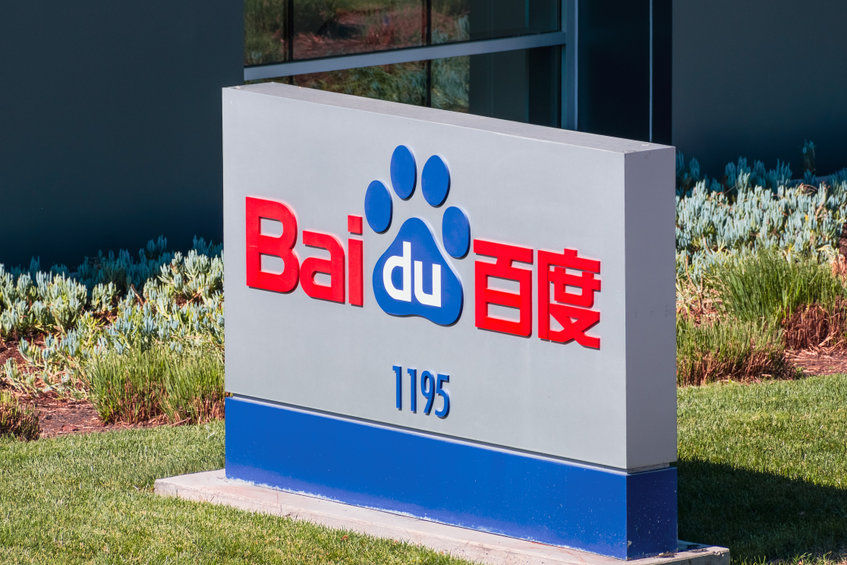Baidu (BIDU) stock price has recovered modestly in the past few days, helped by the strong comeback of Chinese and global equities. It surged to a high of $107.67 on Monday, its highest swing since May 20th, and 31% above its lowest point this year.
Baidu’s rebound has mirrored that of other Chinese tech companies like Alibaba, Meituan, and PDD Holdings.
A large monopoly in China
Baidu is a top Chinese company that operates as a giant monopoly in the search engine industry.
Its success happened after Google exited the country because of the actions by Beijing such as The Great Firewall.
Over the years, it has grown its market share substantially even as it faces competition from companies like Sogou and 360 Search.
Baidu operates the Baidu App, which has tools like search, feed, and health solutions. Also, it runs Haokan, a platform for user-generated and professional videos, which is comparable to YouTube. It also owns IQYI, another video platform, which competes with Alibaba’s Youku and Tencent Video.
Baidu also runs Baidu Wiki, Baidu Knows, Baidu Post, and Baidu Experience. Additionally, the company has moved into the artificial intelligence (AI) industry through its ERNIE bot. It is also working on a robotaxi business. Baidu also runs other services for business clients like Core, its cloud computing solution.
Therefore, to a large extent, Baidu’s business model is similar to that of Google, one of the biggest companies in the United States. The challenge, however, is that Alphabet is primarily a global brand with global operations.
Baidu, on the other hand, is mostly a local company with limited operations in other countries. As a result, it has limited growth prospects. Indeed, data shows that its annual revenues have grown only modestly from $15 billion in 2019 to $18.9 billion last year.
In the same period, Alphabet’s revenue has soared from $161 billion to over $307 billion in the last financial year.
What Baidu has grown is its profitability, which has moved from $295 million to over $2.8 billion. Google’s profits rose from $34 billion to over $73 billion.
Baidu’s growth has slowed
The most recent financial results showed that Baidu’s growth has mostly slowed because of the woes in China, where most companies have reported weak numbers.
Its quarterly revenues dropped from RMB 34 billion in the third quarter of 2023 to RMB 33.9 billion or $4.6 billion in Q2. Its online marketing services dropped from RMB 21 billion to RMB 20.62 billion. Revenues in the year’s first half moved from RMB 65.2 billion to RMB 65.4 billion or $9 billion.
These numbers mean that its business is not doing well as the Chinese economy slows. Analysts expect its revenue to be $4.8 billion in the current quarter. Its full-year revenues are expected to be $19.3 billion, followed to $20.4 billion next year.
Baidu’s profit is expected to grow gradually this year from $11.42 to $11.49 followed by $11.5 in the next financial year.
BIDU valuation
Therefore, Baidu is no longer a growth stock, which explains why its valuation is smaller than that of Google and other firms.
Baidu’s price-to-earnings ratio is 9.07, much lower than the communication sector median of 13.42. It is also smaller than the five-year average of 15.2. Baidu’s forward P/E ratio stands at 11.90, which is also lower than the sector median of 19.
Alphabet, on the other hand, has a P/E multiple of 23.53 and a forward ratio of 21, which are higher than 20.75 and 19, respectively.
This valuation difference is because Google is growing at a fast pace. Its forward revenue multiple is 10.98, while Baidu’s metric is 4.50.
There are also signs that Baidu’s website traffic has dropped in the past few months. Data by SimilarWeb shows that its traffic dropped by 1% in August to 2.52 billion while Google’s traffic surged to 83.5 billion.
Baidu stock price analysis
BIDU chart by TradingView
The daily chart shows that the BIDU share price bottomed at $80 in August and has bounced back by over 31% to the current $105.70.
This rebound happened after the stock formed a falling wedge chart pattern, a popular bullish sign. It has now moved above the 50-day and 200-day Exponential Moving Averages (EMA), meaning that bulls are now in control.
The Relative Strength Index (RSI) has moved above the overbought point of 80. Therefore, the stock will likely continue rising as bulls target the next point at $115.35, its highest point on May 6, which is about 10% above the current level.
The post Baidu stock is extremely cheap, but one key risk remain appeared first on Invezz

